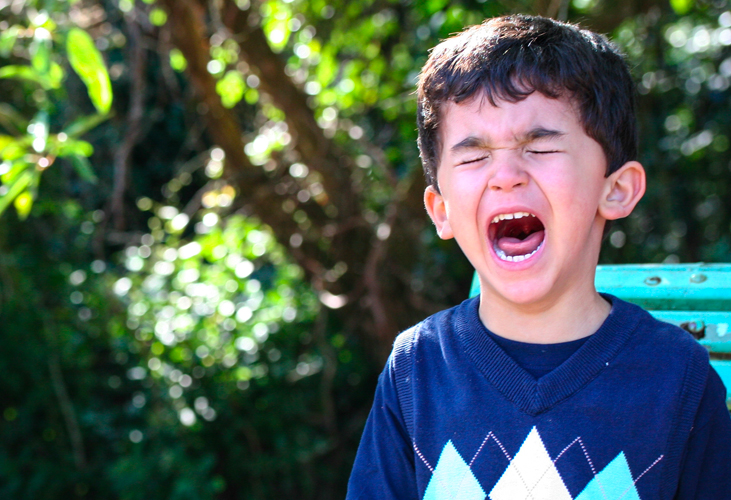Mothers’ Stories
Things I did not expect to know while breastfeeding my baby
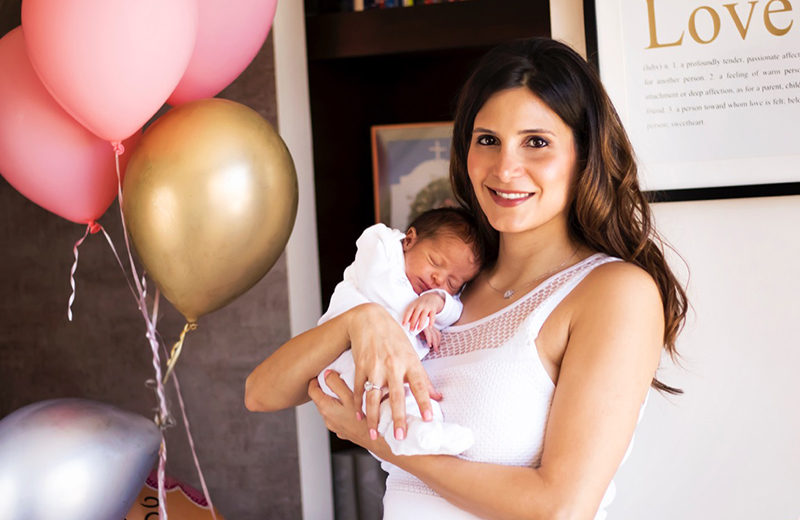
Breastfeeding shouldn't be painful. Your nipples shouldn't be sore or cracked. If that's the case, your baby probably has a bad latch, so try again. Practice makes perfect, right? Or maybe not.
To all the mothers out there, my name is Rasha Salib. I am the mother of a five-month-old baby girl. I am passionate about sharing my story about breastfeeding my daughter in the hopes that it can help other struggling mothers.
I have always been a very strong advocate of breastfeeding since I knew a lot about its nutritional and physical health benefits. As a clinical psychologist, I was aware of the psychological effects of breastfeeding on children and mothers, including cognitive and socio-emotional development for the child and the positive impact on mood, stress and maternal care for mothers.
When I got pregnant, this was my mission
For me, reading and learning more about breastfeeding was just as important as educating myself on pregnancy and delivery.

While I was pregnant, I reached out to a lactation consultant and had a few sessions with her to learn more about how I can succeed in giving my child the best gift I can give her. This became even more important to me when my gynecologist told me I would most probably need to deliver by C-section, given that my baby was in a Frank breech position.
I knew it would be harder for me to establish breastfeeding after a C-section, given the pain and the medications needed to manage it, as well as the fact that the milk may take longer to come in. However, that made me more determined to make it work.
I educated myself and read many articles online about having a natural/gentle C-section, which is becoming more popular in the U.S. Thankfully, both my gynecologist and my daughter’s pediatrician supported my intentions.
On the day of her delivery, the pediatrician assessed my daughter, wrapped her in warm blankets and placed her in my arms. I kissed her forehead, and then, as my birth plan dictated, my baby was placed on my breast for her first nursing session and immediate skin-to-skin contact, in the hope that this golden hour would help initiate breastfeeding.
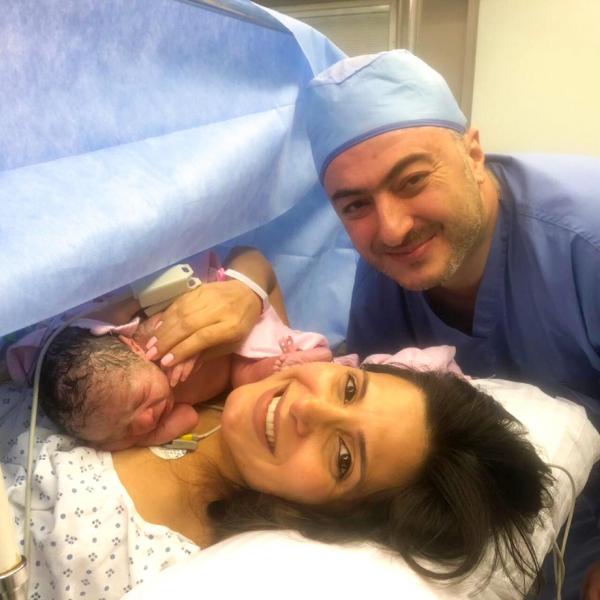
However, from the very beginning, my daughter’s latch wasn’t deep, and she wouldn’t empty the breast. She was constantly hungry, had trouble latching, fell asleep while breastfeeding, had poor suction, was fussy, gassy, colicky and produced a clicking sound while breastfeeding.
On the other hand, I had sore/cracked nipples and nipple pain. I felt discouraged and disappointed in breastfeeding and was worried about my milk supply decreasing. Given her low birth weight, I did whatever I could to feed her, I was not sleeping and feeding her around the clock. However, the lack of sleep and exhaustion then negatively affected my milk supply.
It was a vicious cycle, but I thought it was normal since many mothers informed me, “Rasha, you won’t sleep. The first few months of a baby’s life are tough and they're full of sleepless nights.”
So, I pushed myself to keep going because my goal was to succeed at breastfeeding. I worked on positioning and latching techniques by opening my daughter’s jaw, hand compressions, nipple shields, flange size adjusting, pumping, supplements, teas, suckling exercises and much more.
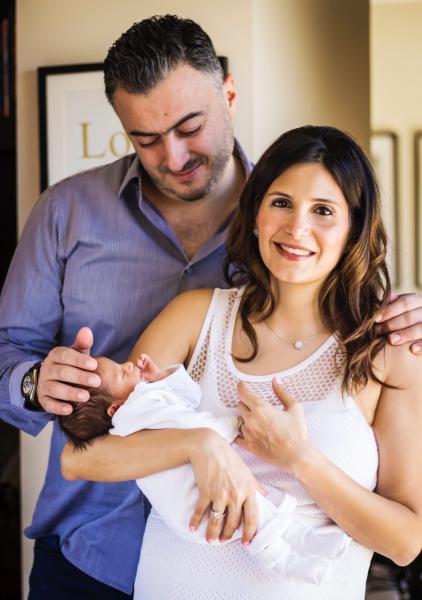
How I knew something was wrong
On Mother’s Day, my dear friend came to visit me and witnessed an abnormally long nursing session followed by a fussy, crying and hungry baby. She had a son with a tongue tie that was surgically released a few months ago. She offered to examine my daughter and recommended that I visit a lactation consultant. From her experience as a mother who went through that, she noticed that my daughter also had a tongue tie.
After seeing her, I immediately scheduled a session with a highly qualified and empowering lactation consultant. She confirmed the diagnosis of a posterior tongue tie and a lip tie, gave us a written report and recommended that we see a surgeon. I started educating myself about tongue ties (aka ankyloglossia) and visited different pediatricians and pediatric surgeons in search of answers on what to do next.
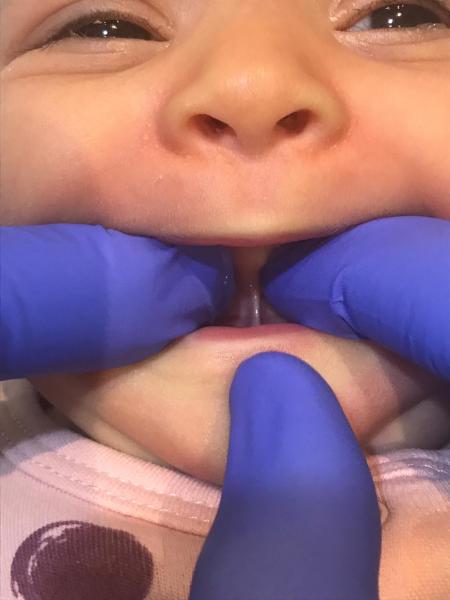
With the exception of our knowledgeable and trusted pediatrician, we got a lot of inaccurate and misleading responses from some of the pediatricians and pediatric surgeons we visited, who mostly used improper techniques to examine my daughter.
Here is a list of the conflicting and confusing information we got as we were searching for answers:
-
There is no such thing as a tongue tie (“a posterior tongue tie isn’t real”) and you would be a horrible mother for messing with her mouth/tongue and ruining it.
-
Your daughter’s tongue is not tied because she could extend her tongue outside of her mouth (even though she wasn’t crying much and couldn’t move her tongue).
-
You can’t tell if she has a tongue tie until the age of two or when she develops feeding and speech problems. When that happens, just take her to a speech therapist.
-
Your daughter will outgrow this problem when her mouth gets bigger.
-
Your daughter doesn’t have a tongue tie because she is gaining weight.
-
Your daughter just has a small mouth and a short tongue.
-
Tongue ties don’t interfere with breastfeeding, you just need more time to toughen up your nipples.
-
This is the latest "trend."
-
Just give her formula, forget about breastfeeding.
All of these responses confused me and I spiraled into exhaustion, uncertainty, sadness and complacency.
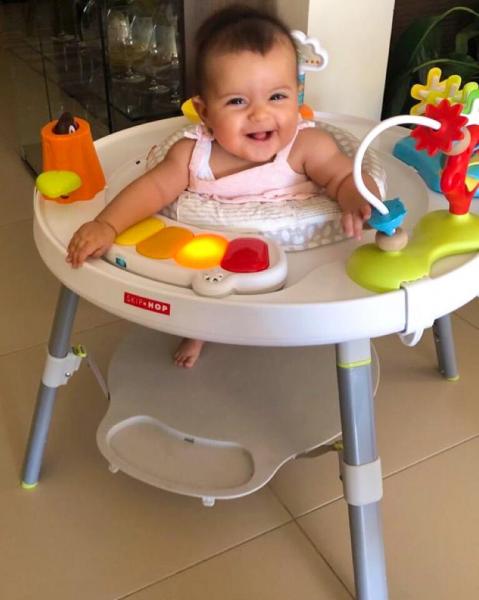
I spent every waking moment trying to feed her. The more confused I was, the more I read and learned about the long-term consequences of unreleased tongue ties including limited tongue mobility, difficulty swallowing and vocalizing, difficulty handling solid foods, poor speech development, dental problems (for example, poor oral hygiene and having a gap in the bottom two front teeth), poor posture, sleep and breathing issues, migraines, and other problems into adulthood.
How I dealt with the situation
At this point that I decided to trust my instincts and follow the recommendation of my dear friend who had her son’s tongue tie released by a qualified doctor in Dubai.
When we called him, he listened to and confirmed all our symptoms and empathized with my pain. He informed us about his use of Radiofrequency in releasing tongue and lip ties, a technique that isn't available in Jordan and causes no bleeding or damage to adjacent tissues.
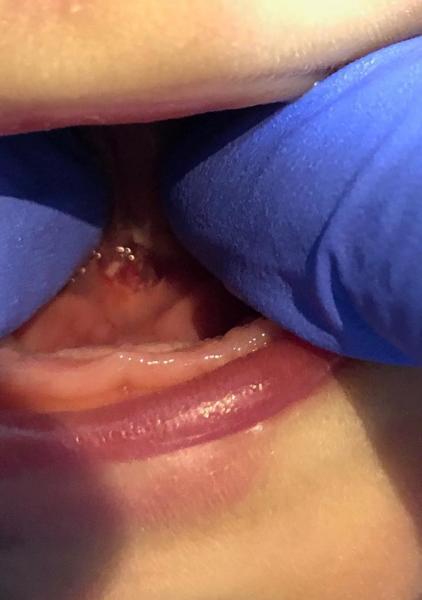
We flew out to Dubai where the doctor performed our baby's posterior tongue tie and lip tie revision within a matter of minutes using Radiofrequency. He then walked us through the greatly important aftercare measures (i.e. stretches and massages) to prevent reattachment. The outcomes of the procedure were miraculously positive.
I was able to breastfeed again! No more gas or colic. My baby was happier and more relaxed. She slept better, and so did I. The nursing sessions were much shorter. No more clicking sound while nursing. It was too good to be true!
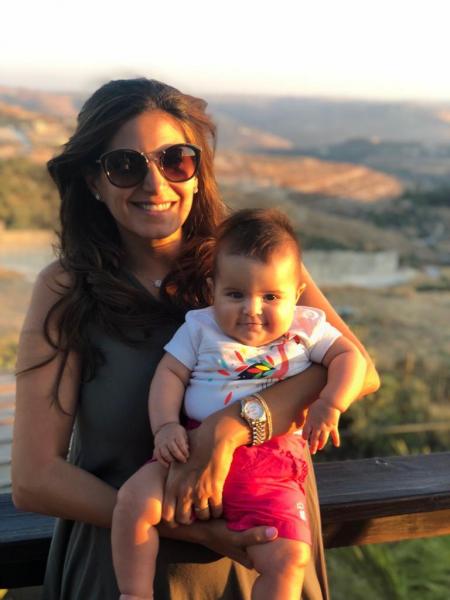
So, my dear mothers, although pain is the number one reason mothers quit breastfeeding, it is one very good indicator a tongue and/or lip tie may exist. Left uncorrected, your child can face craniofacial abnormalities, speech, feeding and developmental delays, sleep apnea, tooth decay and so much more
If you and your little one are struggling on this journey, I urge you to educate yourself on tongue and lip ties; it can make a world of difference.









